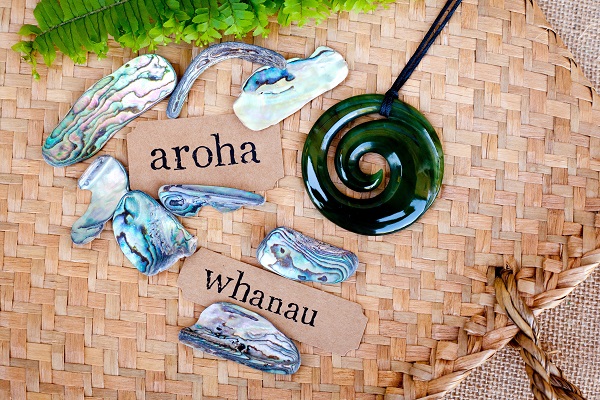
<h4 style="text-align: justify;"><em><i>He uri</i></em><em><i> nō Koterana</i></em><em><i> e mihi nei. Ko Benechie te maunga. Ko Dee te awa. Ko North te moana. </i></em><em><i>Engari, h</i></em><em><i>e Māori āku tamariki, nō Ngāti Awa.</i></em> <em><i>Aku taura here ki te kaupapa o te reo Māor</i></em><em><i>i me te mātauranga Māori ko rātou ko āku mokopuna</i></em><em><i>.</i></em></h4>
<p style="text-align: justify;">Outgoing education minister Hekia Parata recently emphasised the value of learning languages – including the appreciation of culture and identity, the development of neural pathways, the value of diversity, and the expansion of conceptual frameworks.</p>
<p style="text-align: justify;">The benefits of learning Māori are set out in the Māori language curriculum guidelines <em><i>Te Aho Arataki Marau</i></em><em><i>,</i></em> namely: national identity; enhanced linguistic ability; knowledge of another culture; career opportunities; cognitive challenge; and socialisation in different contexts. My vision is for all New Zealand students to enjoy these benefits.</p>
<p style="text-align: justify;">In terms of employment <a class="wpil_keyword_link" href="https://www.schoolnews.co.nz/2015/10/developing-opportunities-at-school-with-a-view/" title="opportunities" data-wpil-keyword-link="linked" target="_blank">opportunities</a> within New Zealand, there is an increasing expectation (particularly in government agencies) that employees will have a basic knowledge of te reo Māori me ōna tikanga. And, globally, there are anecdotal reports of young Kiwis who are well-positioned to accommodate another language and culture overseas, because of their knowledge of Māori. Associated with this are the social <a class="wpil_keyword_link" href="https://www.schoolnews.co.nz/2012/11/many-benefits-to-schools-with-skids-involvement/" title="benefits" data-wpil-keyword-link="linked" target="_blank">benefits</a> that ensue from students mixing with the Māori community while learning te reo – thus building on one of the five competencies in the <em><i>New Zealand Curriculum</i></em> (2007); namely ‘relating to others’ (<em><i>whakawhanaungatanga</i></em>). This competency emphasises <a class="wpil_keyword_link" href="https://www.schoolnews.co.nz/2014/04/the-importance-of-planning/" title="the importance" data-wpil-keyword-link="linked" target="_blank">the importance</a> of interacting with a variety of people in a range of contexts, recognising their different perspectives.</p>
<p style="text-align: justify;">There are also cognitive benefits from learning another language. For people like me in their advancing years, research into the brain suggests that lifelong bilingualism could delay the onset of memory decline, loss of reasoning and other ailments associated with Alzheimer’s disease. And for students, it is encouraging to note that Ministry of Education research revealed that those learning a second language outperformed their monolingual peers in verbal and non-verbal assessments. Moreover, they were also more autonomous, more creative and more able to multi-task – as well as being able to think more divergently.</p>
<figure id="attachment_5905" aria-describedby="caption-attachment-5905" style="width: 600px" class="wp-caption aligncenter"><img class="wp-image-5905 size-full" src="https://www.schoolnews.co.nz/wp-content/uploads/2017/05/AdobeStock_113602728-1.jpg" alt="" width="600" height="400" /><figcaption id="caption-attachment-5905" class="wp-caption-text">Learning te reo Māori creates a sense of belonging</figcaption></figure>
<p style="text-align: justify;">As highlighted by one of our leading Māori educationalists commenting on differential achievement, senior lecturer Wally Penetito states categorically that the “wellbeing and learning of Māori children is located in their culture, language and identity”. If this aspect was strengthened in schools, it is reasonable to expect that Māori students’ self-esteem would be enhanced and their achievement would improve. Success breeds success.</p>
<p style="text-align: justify;">Research academic Professor Mason Durie reflects the same view; namely, that in order to be successful at school, Māori students need to have their language and culture validated. In fact, he goes as far as saying that: “If, after 12 or so years of formal education, a Māori youth were totally unprepared to interact within te ao Māori, then, no matter what else had been learned, education would have been incomplete<em><i>&#8220;.<br />
</i></em><strong><b>Useful Māori language phrases – give te reo </b></strong><strong><b>M</b></strong><strong><b>āori a go!<br />
</b></strong>In conclusion, to build teachers’ <a class="wpil_keyword_link" href="https://www.schoolnews.co.nz/2015/02/vote-of-confidence-for-library-management-system/" title="confidence" data-wpil-keyword-link="linked" target="_blank">confidence</a>, here is some Māori language useful for the classroom (primary and secondary) or early childhood centre.</p>
<p style="text-align: justify;"><strong><b>Greetings<br />
</b></strong>Nau mai. Haere mai. <em><i>Welcome</i></em>.<br />
Kia ora. <em><i>Hi</i></em>.<br />
Tēnā koe. <em><i>Hello </i></em>(to one person)<br />
Tēnā kōrua. <em><i>Hello </i></em>(to two people)<br />
Tēnā koutou. <em><i>Hello </i></em>(to more than two)<br />
Mōrena/Ata mārie. <em><i>Good morning</i></em>.<br />
Kei te pēhea koe? <em><i>How are you?<br />
</i></em>Kei te pai.<em><i> Fine.</i></em><strong><b> </b></strong></p>
<p style="text-align: justify;"><strong><b>Farewells<br />
</b></strong>Ka kite anō. <em><i>See you again.<br />
</i></em>E noho rā. <em><i>Bye </i></em>(said to someone who’s staying behind).<br />
Haere rā. <em><i>Bye </i></em>(said to someone who’s leaving).</p>
<p style="text-align: justify;"><strong><b>Introductions<br />
</b></strong>Ko Wiremu tēnei. <em><i>This is Wiremu.<br />
</i></em>Ko wai tō ingoa? <em><i>What is your name?<br />
</i></em>Ko Hone. <em><i>It’s Hone</i></em>.<br />
Nō hea koe? <em><i>Where are you from?<br />
</i></em>Nō Ngāti Awa. <em><i>From Ngāti Awa.</i></em></p>
<p style="text-align: justify;"><strong><b>Surprise<br />
</b></strong>Nē rā! <em><i>You don’t say!</i></em></p>
<p style="text-align: justify;"><strong><b>Praise<br />
</b></strong>Tino pai. <em><i>Very good</i></em>.<br />
Ka pai. <em><i>Good</i></em>.<br />
Ka mau te wehi. <em><i>Awesome</i></em>.<br />
Mīharo. <em><i>Amazing</i></em>.<br />
Ataahua. <em><i>Beautiful</i></em>.</p>
<p style="text-align: justify;"><strong><b>Encouragement<br />
</b></strong>Haere tonu. <em><i>Keep going.<br />
</i></em>Kia kaha. <em><i>Give it heaps.</i></em></p>
<p style="text-align: justify;"><b></b><strong><b>Apologising<br />
</b></strong>Aroha mai. <em><i>Sorry</i></em>.</p>
<p style="text-align: justify;"><b></b><strong><b>Thanks<br />
</b></strong>Kia ora. <em><i>Thank</i></em><em><i> </i></em><em><i>you.</i></em></p>
<p style="text-align: justify;"><strong><b>Commands<br />
</b></strong>E noho! <em><i>Sit down!<br />
</i></em>Whakarongo mai! <em><i>Listen here!<br />
</i></em>Hōmai tō pukapuka! <em><i>Pass me your book!<br />
</i></em>Kia tere! <em><i>Be quick!<br />
</i></em>Turituri! <em><i>Quiet</i></em>!<br />
Rārangi mai! <em><i>Line up here, near me!<br />
</i></em>Rārangi atu! <em><i>Line up over there!<br />
</i></em>Rārangi ki waho/roto! <em><i>Line up outside/inside!<br />
</i></em>Kōrero mai. <em><i>Speak to me.<br />
</i></em>Waiata mai. <em><i>Sing to me</i></em>.</p>
<p style="text-align: justify;"><b></b><strong><b>School signage<br />
</b></strong>Kia tūpato. <em><i>Be careful</i></em>.<br />
Horoia ō ringaringa. <em><i>Wash your hands</i></em></p>

NZCER found generative AI tools are frequently used to support teaching and learning in primary…
The Ministry decision to discontinue a reading resource over kupu Māori has angered the sector…
NCEA was designed to broaden educational success, explains David Pomeroy from the University of Canterbury.
More than just a break from the classroom, a visit to a zoo or wildlife…
Without proper maintenance and care, trees can become a hazard. Are your trees in need…
Loneliness and social disconnection negatively impact wellbeing. A new WHO report finds teens feel the…
This website uses cookies.